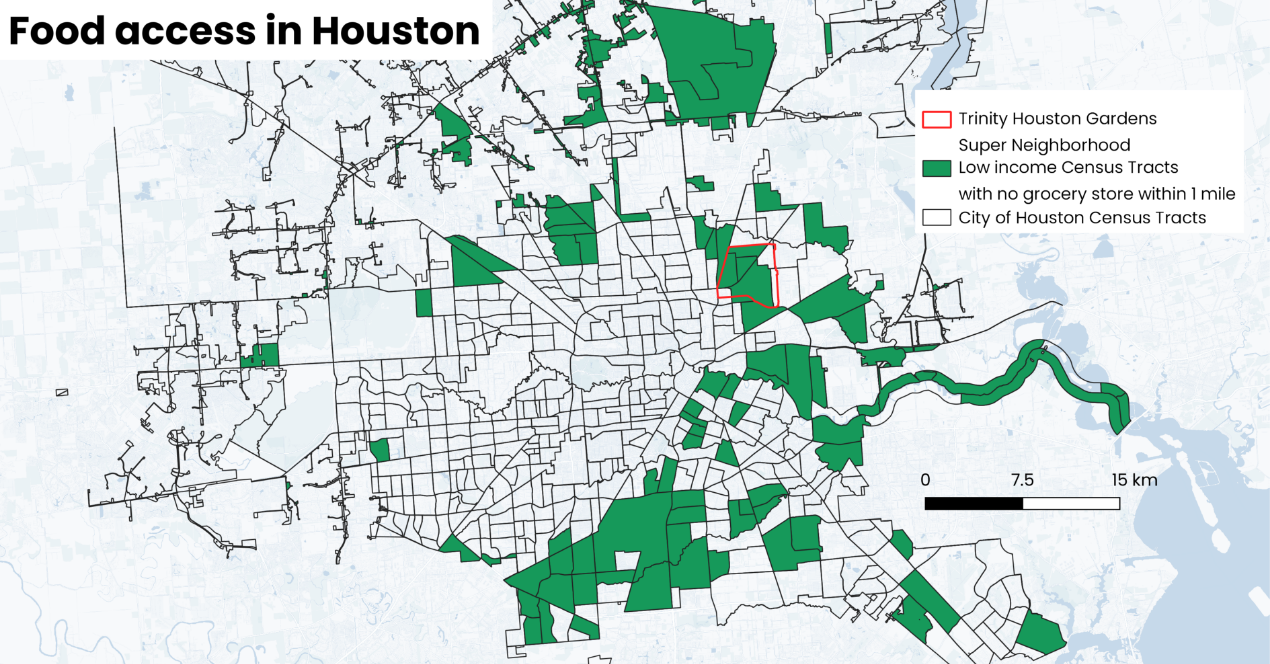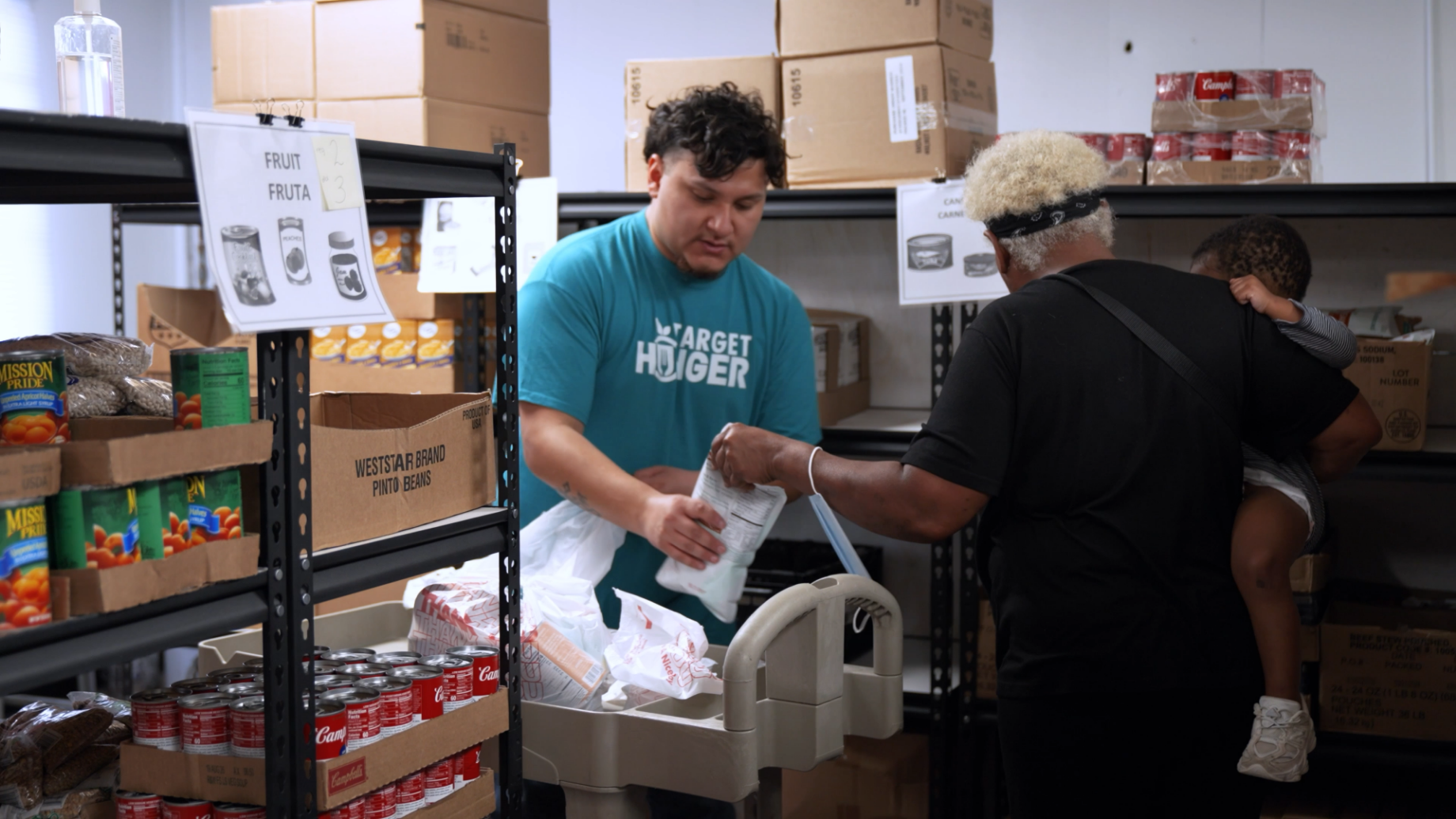Over 1,500 residents connected to resources in their community
Target Hunger is deploying a dedicated team of bilingual, state-certified Community Health Workers at food pantries to ensure families have access to and benefit from essential services.
Community health workers are supporting residents with access to education, health and jobs resources.
Community health workers build relationships and raise awareness about resources available to residents.
Target Hunger partners with ~70 healthcare, educational, workforce development and social service organizations to respond to community needs.
To build a picture of each community, the Resilience for Communities (R4C) program used risk mapping, open-data sources, expert interviews, community surveys and focus groups. This assessment used the Climate Resilience Measurement for Communities (CRMC) tool to assess community resilience to extreme heat and flooding - helping to identify priorities and design solutions.
Sources of resilience — Enhanced food security strengthens the community’s financial, human and social capital.
Residents will be connected with education and resources that can improve health, incomes and well-being
Community members are more aware of the resources available to them to develop their skills, education and employment.
Connecting families to community-based resources and improving their well-being improves their ability to give back to the community.
Impact multipliers — Resilience solutions have a different mix of impact multipliers and impact multiple systems, businesses and societies. Together, multipliers produce anamplified impact.
Strengthening recovery from disasters
Residents will have increased access to support needed to recover from climate related disruptions to food access or income generation.
Increased community cohesion
Enhanced access to and increased utilization of available assistance programs by residents, leading to greater community support and well-being.
Community awareness
Enhanced awareness of resources available to community members.
How does this solution make a difference? – Addressing prioritized shocks and stresses
Breaking the cycle of poverty
Through wrap-around social support, Target Hunger focuses on providing additional resources to the most vulnerable community members, empowering individuals to break the cycle of poverty, food insecurity and improve their overall well-being.
Improving families’ health and well-being
Helping families enroll in insurance programs helps bring down expenses, freeing up funds for other necessities including food and housing.
Census tracts in Houston flagged for low income and low food access within a 1-mile distance (Source: U.S Department of Agriculture Food Access Research Atlas).




